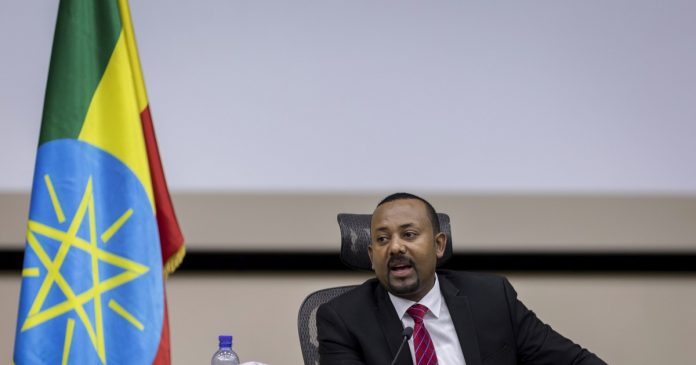When Ethiopian Prime Minister Abiy Ahmed won the Nobel Peace Prize in 2019, he was the toast of the town.
Today, he is among the world’s most dangerous men. Almost a year ago, he sent his army into Ethiopia’s northern Tigray region after leaders there defied his order to postpone elections. Abiy apologists blame his former partners in the Tigray People’s Liberation Front for sparking the conflict by attacking an Ethiopian military position . But Abiy’s subsequent operation appeared preplanned, and the collective punishment upon ethnic Tigrayans in Tigray and in Ethiopia’s capital Addis Ababa was clearly illegal. Abiy moved to isolate Tigray, restrict media access, and prevent food and humanitarian aid from reaching the province.
Abiy calculated that military intervention would be swift and decisive.
He was wrong. While the Ethiopian army initially cut through Tigray and forced Tigrayan fighters into the countryside, he wildly inflated the claim of their defeat. In July, Tigrayan forces recaptured their provincial capital and marched several thousand Ethiopian army prisoners through it. Abiy sought to raise ethnic militias from Ethiopia’s other provinces to do what the Ethiopian army could not. This, too, backfired: Not only was it throwing water onto a grease fire, but many Ethiopians also did not want Abiy to drive them into an unwise and unnecessary civil war that increasingly appeared to have more to do with Abiy’s ego than necessity. Indeed, all of Ethiopia has suffered from Abiy’s militaristic turn. He has transformed a promising economy into ruin.
In recent days, the situation has deteriorated further.
On Sept. 28, Martin Griffiths, the United Nations’s undersecretary-general for humanitarian affairs and its emergency relief coordinator, warned that famine was imminent in Tigray unless the Ethiopian government allowed aid trucks into the province. Abiy responded by expelling seven U.N. employees, including the heads of the Ethiopian offices of UNICEF and the head of the U.N. Office for the Coordination of Humanitarian Affairs. According to the U.N., 400,000 Tigrayans are at risk of imminent starvation. Abiy’s actions drew harsh White House condemnation .
What is worse, however, is the defiant rhetoric that Abiy and his close circle of cronies have adopted.
Samantha Power, the administrator of the U.S. Agency for International Development who once wrote a book on genocide, noted that the virulent rhetoric of Ethiopian officials toward Tigray and that of Ethiopian online trolls mirrored the dehumanizing rhetoric that often preceded genocides elsewhere. Abiy has vowed to crush “the weeds” of Tigray, while his regime has promised to uproot the cancer.
In 1994, the U.N. and the world largely stood aside as Hutu militants, backed by France , prepared to wage genocide against Rwanda’s Tutsis. So, too, did the United States. In terms of rhetoric and militancy, Abiy and the Amharas with whom he allied appear prepared for a repeat. If the world does not take concrete action against Abiy to compel him to stand down on his plan, the question is not if there will be genocide against the Tigrayans, but when.
By Mchael Rubin
The Washington Examiner






























